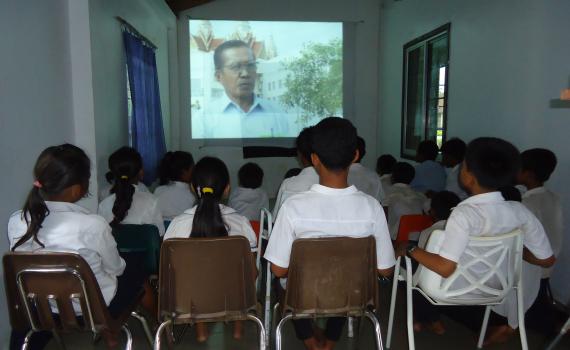
COMMUNITY NEED
Research published in 209 found that although over three million Cambodians died or suffered during the brutal regime of Pol Pot (1975-1979), very few young people knew about the period because older people were reluctant to speak about it. This research inspired the Supplementary Teaching Education Project (STEP) Digital Archives Project.
The innovative project
The project aims to break the silence about 'Pol Pot time', and enhance communication between the generations by helping young people understand how their parents and grandparents suffered under the regime.
Working with Lveate Centrestone Public Library in Meanchey district, and with equipment and some operational support from EIFL’s Public Library Innovation Programme (EIFL-PLIP), STEP purchased digital audio and video recording equipment, a projector and screen. Oral history, especially where violence and trauma are involved, requires sensitivity, and so the STEP team worked with expert partners.
The Documentation Centre of Cambodia (DC-Cam) trained librarians to conduct and transcribe interviews. The librarians held community meetings to encourage villagers to come forward and be interviewed, and two interviewers travelled many miles to remote villages to interview survivors in their homes. In just nine months, they conducted 115 interviews. With the villagers’ permission, most of the interviews were recorded on film.
EIFL-PLIP PROJECT TIMELINE
May 2010 - April 2011.
achievements and impact
The project has achieved its goal of promoting greater openness about the Pol Pot regime. All 115 villagers interviewed were happy to share their stories with other villagers and with school children. Villagers also said they found it comforting to speak about the period.
Inspired by the project, an anonymous donor supported construction of an oral history viewing room in Centrestone Lveate Public Library. School children regularly come to the library with their teachers to view the films and to discuss the history.
ADDITIONAL RESOURCES
Read a two-page case study about the project.
More libraries contributing to digital inclusion
Read about more innovative public library services that contribute to digital inclusion in the community. PLIP-DIGITAL-INCLUSION





